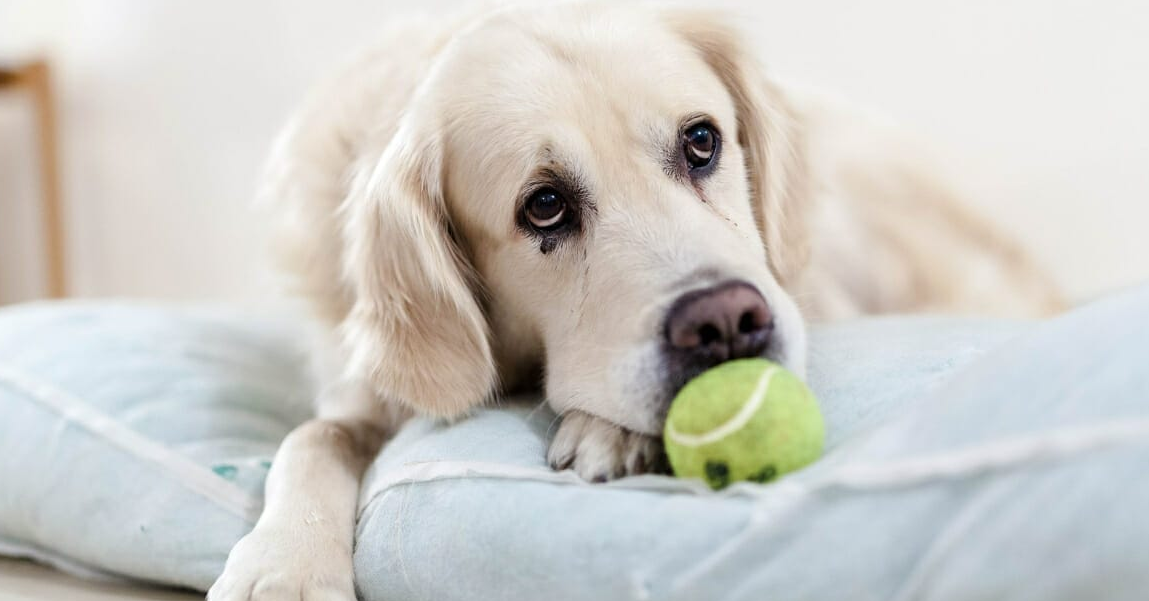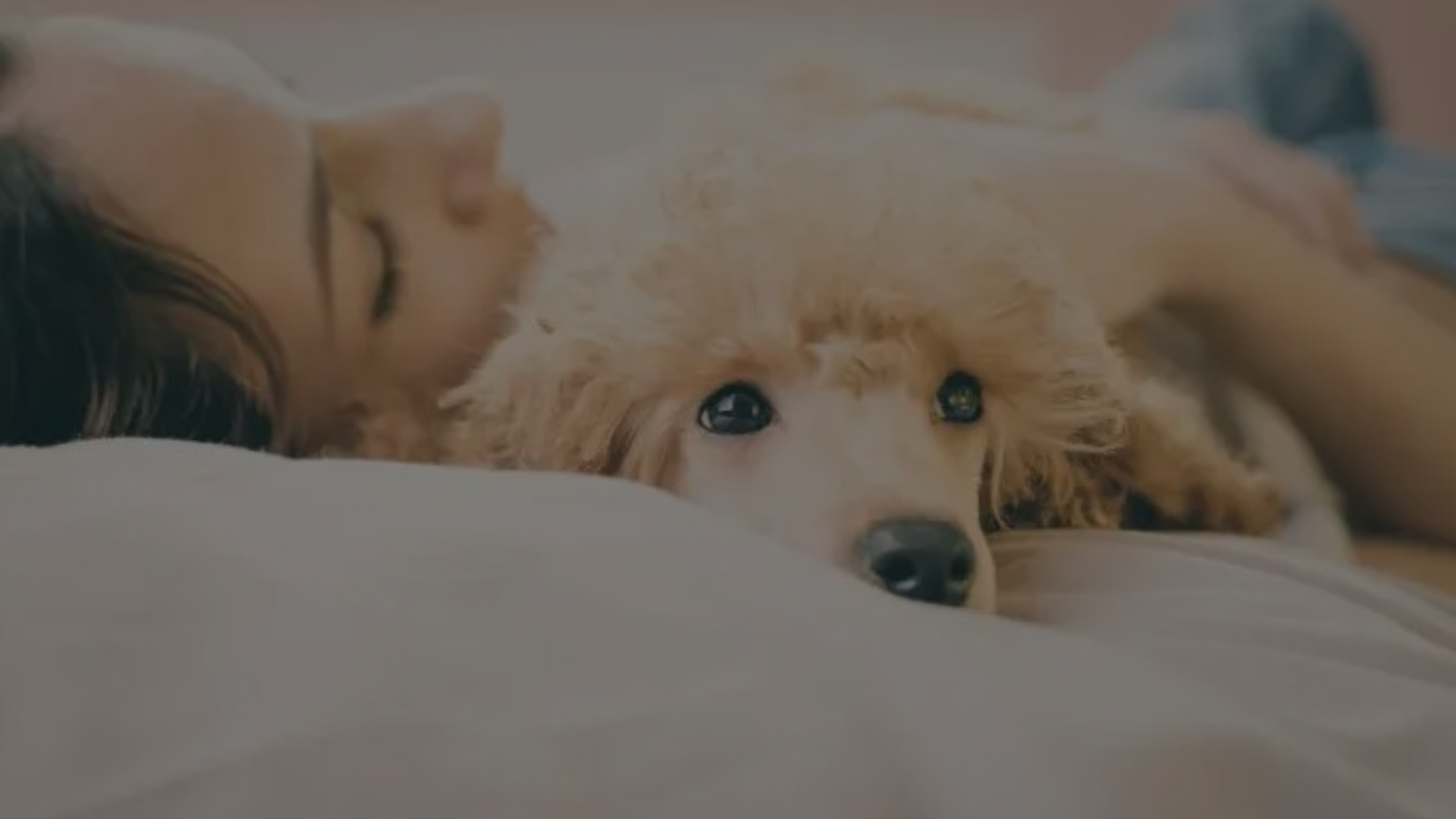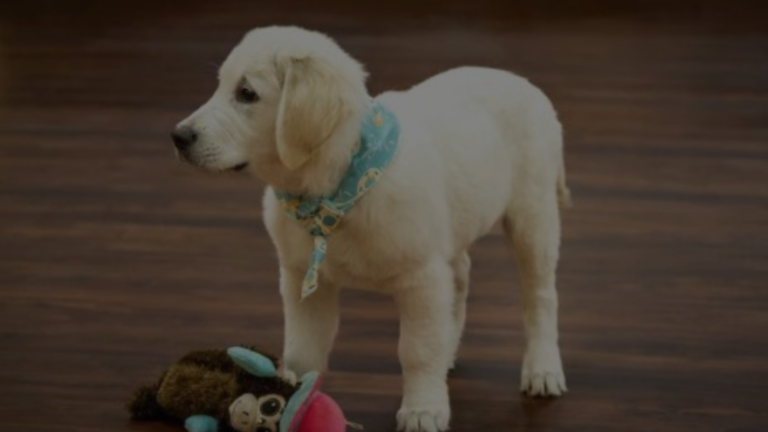Imagine drifting off to sleep, cozy and warm, only to feel the weight of your beloved dog’s head gently settle on your neck. While adorable on the surface, you might wonder, “Why does my dog sleep on my neck?” Is it simply affection, or does it signify something deeper?
Buckle up, dog lovers, as we delve into the fascinating world of canine sleep habits and explore the reasons behind your furry friend’s neck-snuggling tendencies..
Why Does My Dog Sleep on My Neck?
For many dogs, sleeping on your neck is a powerful expression of love and trust. Think of it as a canine cuddle, their way of seeking closeness and comfort from their favorite human. Your scent, warmth, and heartbeat act as soothing lullabies, creating a sense of security and belonging.
This behavior often stems from early puppyhood, where snuggling with littermates provided comfort and warmth. Now, you’ve become their safe haven, a familiar source of reassurance in the big, wide world.
Signs of Affectionate Necksnuggles
- Relaxed body posture: Loose muscles, gentle breathing, and a contented sigh indicate pure relaxation and enjoyment.
- Tail wags and soft whines: Subtle signs of happiness and contentment while snuggling close.
- Seeks out your neck specifically: If your dog chooses your neck over other comfortable spots, it’s likely a deliberate act of affection.

Strengthening the Bond
- Gentle petting and soft words: Acknowledge and appreciate their affection with loving interactions.
- Create designated cuddle time: Set aside time for snuggles on your terms, establishing healthy boundaries.
- Respect their space: When you need personal space, gently guide them away without negativity.
Anxiety and Insecurity
While often an affectionate gesture, neck-sleeping can sometimes reflect underlying anxieties or insecurities in your dog. Loud noises, unfamiliar environments, or separation anxiety can trigger a need for closeness and comfort.
Signs of Anxiety-driven Necksnuggles
- Tense body posture: Stiff muscles, shallow breathing, and whale eyes (showing whites of the eyes) can indicate unease.
- Excessive licking or panting: Can be signs of stress or nervousness.
- Changes in sleep patterns: Difficulty settling down, restless sleep, or waking up frequently.

Addressing Anxiety-related Snuggles
- Identify the root cause: Observe triggers and consult a veterinarian or behaviorist to understand the underlying anxiety.
- Provide a safe space: Create a designated calm area with familiar items to help them feel secure.
- Desensitize and counter-condition: Gradually expose them to triggers in a positive way, associating them with calmness.
- Seek professional help: If anxiety persists, consult a qualified animal behaviorist for personalized guidance.
Other Possible Reasons for Neck-sleeping
- Dominance: While uncommon, some dogs might attempt to assert dominance by placing their head on your neck. This is usually accompanied by other dominant behaviors like staring or mounting.
- Medical conditions: In rare cases, neck-sleeping might be linked to respiratory issues or neurological problems. Consult a veterinarian if you suspect a medical cause.
Remember:
- Every dog is unique, and their reasons for neck-sleeping can vary. Observe their behavior and body language to understand their motivations.
- If you’re concerned about their anxiety, seeking professional help can significantly improve their well-being.
- Enjoy the snuggles, but be mindful of potential underlying issues and prioritize your dog’s comfort and security.
Sleeping Soundly with Your Furry Friend
Whether it’s a sign of unwavering affection or a response to anxiety, understanding your dog’s neck-sleeping behavior allows you to respond appropriately and strengthen your bond. By providing a safe and loving environment, addressing potential anxieties, and respecting their boundaries, you can ensure both you and your canine companion enjoy a peaceful and restful sleep.

So, the next time your furry friend seeks a cozy spot on your neck, cuddle up, understand their language of love, and appreciate the unique connection you share.
Resources & References
- American Kennel Club: https://casper.com/blog/dog-sleeping-positions/
- Association of Professional Dog Trainers: https://apdt.com/
- American Society for the Prevention of Cruelty to Animals: https://www.aspca.org/
- The Power of Positive Dog Training: https://www.amazon.com/Power-Positive-Dog-Training/dp/0470241845
FAQs About Why Your Dog Sleeps on Your Neck
Is it a sign of affection?
Absolutely! This is the most common reason. Your dog craves closeness and feels safe and loved with their head on your neck. It’s their way of cuddling and showing devotion.
Does it have anything to do with warmth?
You bet! Your body heat acts like a cozy heating pad for your pup. Especially in cooler months, snuggling against you provides warmth and comfort.
Could it be due to anxiety?
Sometimes, yes. Your dog might seek physical reassurance on your neck if they’re feeling nervous or insecure, like during a storm or when you’re leaving them alone.
Is it a dominance thing?
Despite popular belief, this is unlikely. Sleeping on someone’s neck usually indicates trust and submission, not dominance.
Is it okay to let them sleep there?
Generally, yes, as long as you’re comfortable and it doesn’t disrupt your sleep. However, if it becomes problematic (e.g., weight, breathing obstruction), gently guide them to another comfy spot.
What if I don’t like it?
You’re not alone! If the neck cuddles aren’t for you, offer alternative options like a designated dog bed or cuddle time on the couch. Be consistent and gentle in redirecting their behavior.







